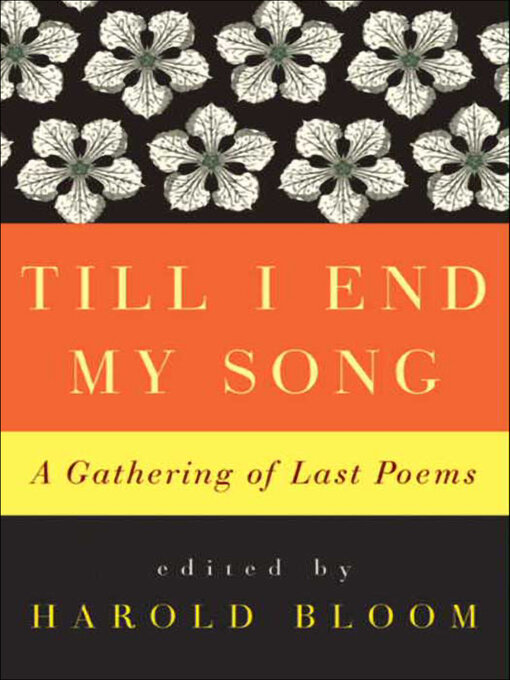“A colossus among critics. . . . His enthusiasm for literature is a joyous intoxicant.” —New York Times
In this charming anthology, esteemed literary critic Harold Bloom collects the last poems of history's most important and celebrated poets. As with his immensely popular Best Poems of the English Language, Bloom has carefully curated and annotated the final works of one hundred poets in Till I End My Song, with selections from John Keats, T.S. Eliot, Elizabeth Bishop, Emily Dickinson, Dylan Thomas, Robert Frost, D.H. Lawrence, W.H. Auden, John Milton, Herman Melville, Emily Brontë, and others. Written with the same wise and discerning commentary of earlier books—including his acclaimed Shakespeare: The Invention of the Human and The Book of J—Till I End My Song is a moving and provocative meditation on the relationship between art, meaning, and ultimately, death, from the literary titan of our time.

